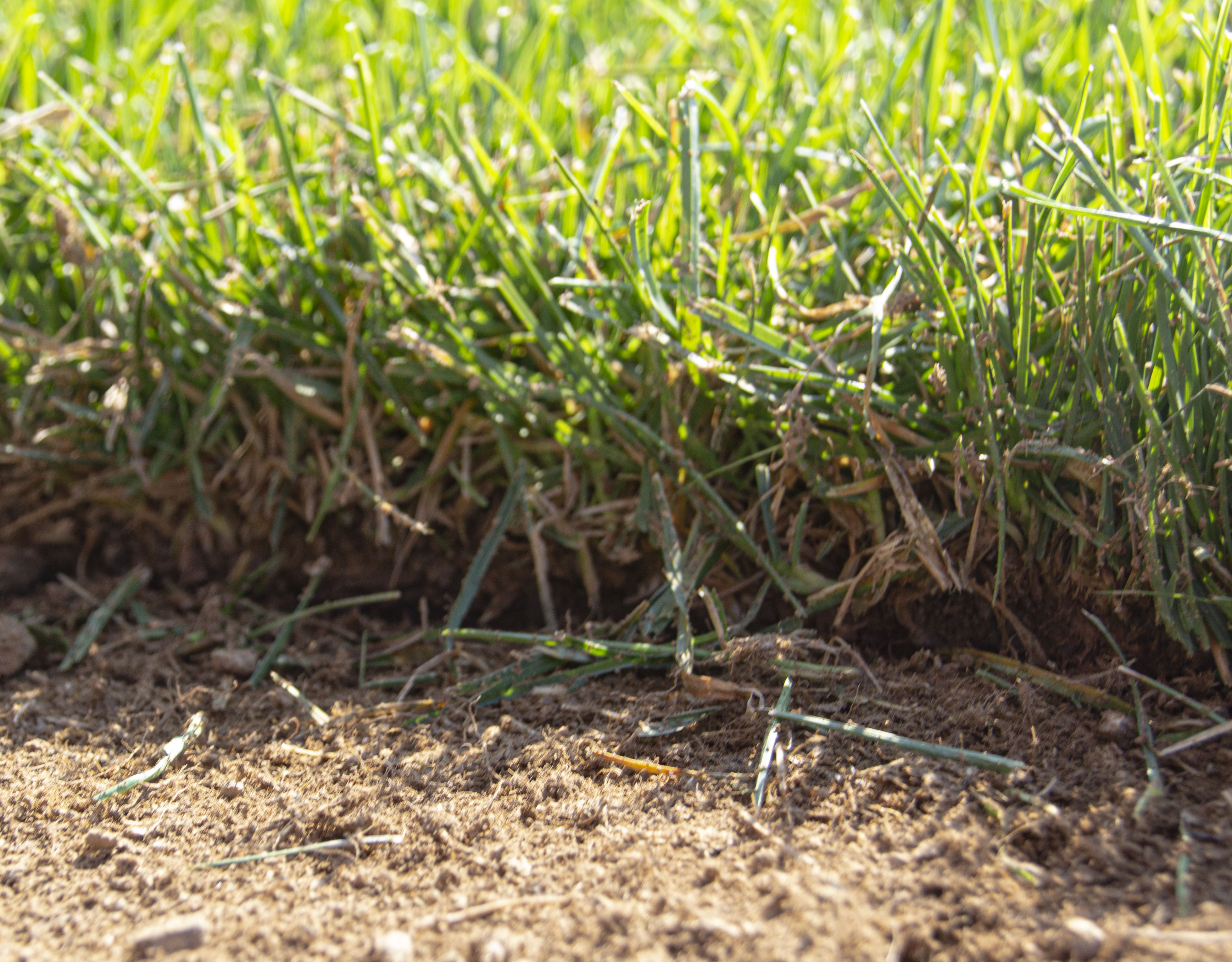Farms in Jackson, Jefferson counties in WV Conservation Farm of the Year competition
CHARLESTON, W.Va. -- A Jefferson County farm specializing in the marketing and sale of turfgrass sod and a Jackson County cow/calf operation, which have both implemented best management practices to protect soil and grasses on their farms, have competed to be named the 2022 West Virginia Conservation Farm of the Year.
Jason Meadows and his son in Ripley, in Jackson County, and J. Ware III and his family in Kearneysville, in Jefferson County, are finalists for this year’s award, given annually to an operation that has first won at the county, conservation district and then area levels. The finalists have demonstrated a commitment to conservation practices that protect soil, streams, water, grasses, wildlife and other natural resources.
Judges toured the farms Aug. 24 and Aug. 25 and graded the farmers on their use of best management practices, impact on ecological systems and community-based activities.
West Virginia Commissioner of Agriculture Kent Leonhardt, the chairman of the State Conservation Committee, was one of the judges.
The winner among the two finalists will be named at the Oct. 18 West Virginia Conservation Partnership Conference luncheon in Flatwoods.
Jason Meadows Farm
(Top two photos below are from the Meadows farm.)
Jason Meadows’ 520-acre farm in Ripley in Jackson County, which he co-operates with his son, Jace, is the West Area finalist on the statewide tour. Meadows practices rotational grazing on his farm, and the cattle are rotated each week so that the grass is not overgrazed, which could cause erosion. Also, pasture division fence dividing the paddocks are necessary for rotational grazing.
Meadows plants corn and soybeans on his farm and rotates those crops, and then plants winter wheat for use as a cover crop after harvesting the soybeans or corn. Cover crops protect soil from erosion and enrich it. Jason also no-till plants his crops to not disturb the soil and practices cross-slope farming, which controls water runoff to prevent erosion.
During the spring, he uses manure that is stockpiled over the winter to enrich his fields and pastures. In the wet winter periods, he keeps cattle in the barns and out of the pastures to further protect vegetation and soil from erosion.
His barns are equipped with gutters that pipe stormwater to a creek running through the farm.
Among many other practices, Meadows also uses lime and frost seeding to improve grass production on the farm.
As part of his community outreach, he’s also welcomed participants with the Wounded Warrior Project to hunt on the farm during hunting season.
“We’ve got some wheelchair-accessible cabins or hunting blinds for them, too,” he said. “They’ve been coming five, six years to the farm.”
Additionally, Jason has volunteered many hours to build fencing, bleachers and perform other site work on youth soccer, baseball and football fields, has helped construct a new exhibit hall at the Jackson County Junior Fairgrounds, helped with mowing and maintenance at the Silverton United Methodist Church, helped install a generator at the Silverton Volunteer Fire Department, and sponsored truck pulls for FFA as well as during a fundraiser for a local cancer patient.
Green Horizons Turf Farm
(Bottom two photos below are from the Green Horizons farm.)
Green Horizons Turf Farm in Kearneysville in Jefferson County, which is owned by The Ware family, is the East Area finalist on the statewide tour. The Wares currently grow and maintain more than 125 acres of turfgrass sod, and the operation is one of only two turf farms in West Virginia. Farmer J. Ware III contracts to sell his turf to PGA golf courses and country clubs in the mid-Atlantic region.
J. Ware is quick to dispel the myth that sod harvesting strips topsoil. He’s researched and cultivated growing practices that help his crop stand out and contributes to soil conservation.
“There’s no better erosion control than sod,” he said.
He notes that soil is not removed with the sod, and that the turfgrass sod is left growing until a mature root system has been developed. After the sod is harvested, cover crops or soybeans are planted to build soil structure, replenish nutrients, and control erosion.
The Wares’ operation also includes hay, grain, and beef cattle.
They have implemented agronomic best management practices on their farm, which include rotational grazing of cattle over nearly 88 acres, application of lime on 208 acres, pasture re-seeding, more than 2,800 feet of fencing, water pipeline for cattle, an irrigation system, precision soil sampling on 120 acres of sod fields, and more.
The Wares have been involved in the community and have shared their resources and knowledge, hosting agriculture field days, welcoming agriculture teachers and garden clubs to the farm, and sharing their knowledge and experience with local farmers about forage production, fertilizing and harvesting. J. Ware also serves on the Jefferson County Planning Commission.
The farm is a joint venture for the entire family, and J’s wife, Andrea, son, August, and daughter Edy, all contribute to its operation. August, 8, has his own beef herd of seven cattle and planted his own half-acre pumpkin patch, his first, earlier this year.



